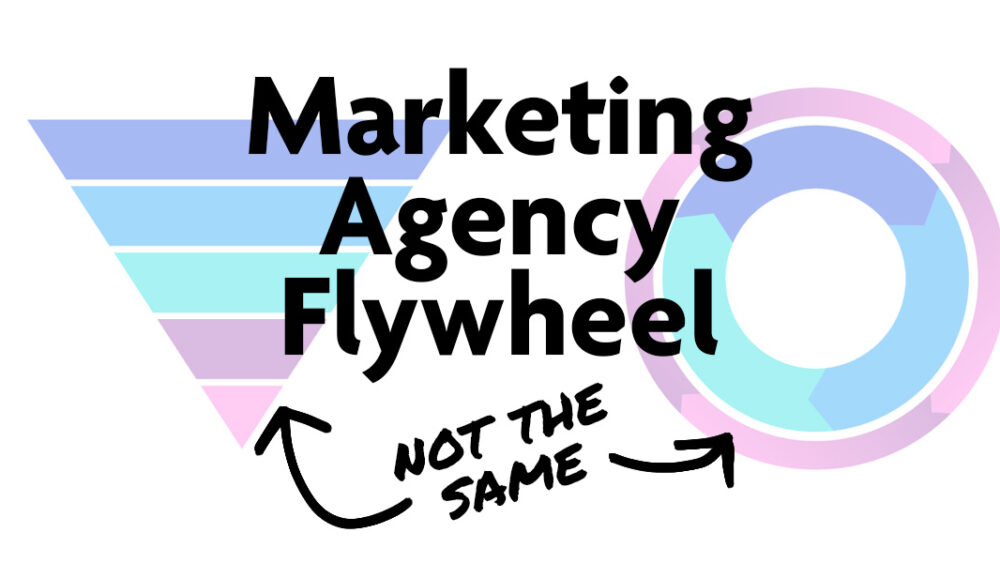Proof the flywheel works: CloseBot’s growth has been powered by delighted customers—5-star Google reviews, the top spot in the HighLevel sub-account marketplace, and G2 Summer 2025 badges—all outcomes of a healthy customer flywheel.

TL;DR
Your funnel helps you get customers. Your flywheel helps you keep and multiply them. The Client Magnet Flywheel runs on three phases—Attract → Engage → Delight—and compounds when you remove friction, reduce complexity, and build trust fast enough to plug the “leaky bucket” that causes churn.
CloseBot accelerates the Attract and Engage phases (qualification, follow-up, nurturing) and reinforces Delight (success reporting, feedback loops), so the whole system spins faster.
Unlock the Power of the Client Magnet Flywheel
A funnel is a small part of the flywheel, but it’s also confused as the funnel itself. If you thought your funnel was your flywheel, you’re about to have your mind blown! Funnels push people into your flywheel, while your flywheel is designed to turn strangers into promoters that fuel your growth.
If you want to learn more about the funnel side of things, check out this blog HERE about $100M Money Models for Agencies with AI.
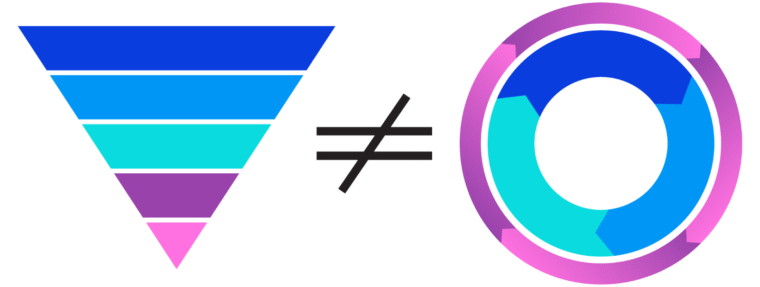
The flywheel compounds because delighted customers become promoters, and promoters attract better-fit strangers who move faster through the system.
The Client Magnet Flywheel (3 Phases)
There are three simple phases to the customer flywheel. Every phase needs to be done just right to have a self-accelerating flywheel. Any break in these areas will slow your flywheel or worse… stop it entirely.
Attract
You’re adding energy to the wheel via marketing, SEO, social channels, and outreach. This is where CloseBot starts pulling weight by qualifying inbound/outbound interest and clearly conveying value so prospects self-select in (or out) early. Win here by publishing value-dense content that earns trust, not just attention. Use CloseBot to route, qualify, and book the right conversations automatically.
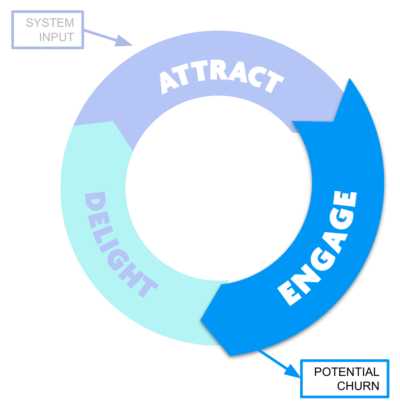
Stuck? If you’re thinking “I have a great offer, but no leads”, you’re stuck at the attract phase and you need to lead with more value, earning more trust. No one likes to buy when they feel they are being told to buy. Build the trust, provide the value, and make sure they know about your offer, but don’t feel forced into it.
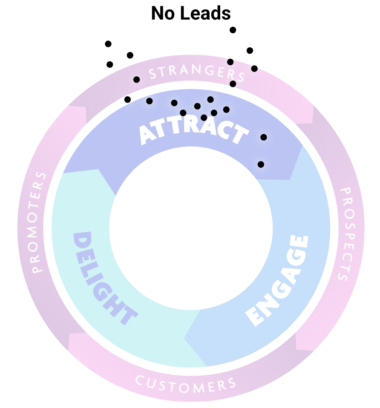
Engage
Here you nurture, build relationships, and fulfill promises. If value delivery lags expectation, you create the conditions for churn, even if the sale “closed.” CloseBot extends value with automated follow-ups, reminders, and context-aware nurturing that keeps momentum alive between human touchpoints. Win here by doing post-demo nurtures, continuing to educate your prospects through emails and webinars, track to see how they are using your resources (or not using them) and continue to provide value.
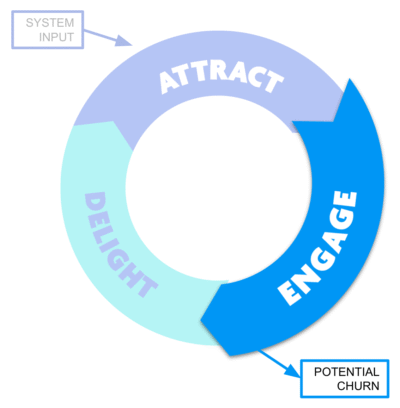
If you’re stuck here you may be feeling “I’m getting leads, but no one is converting” or “I’m getting new customers, but they aren’t sticking around”. If this is you, you’re still not giving your customers enough value… Track their activity so you can fill value gaps, take ownership when you get feedback about your offer and keep building that relationship.
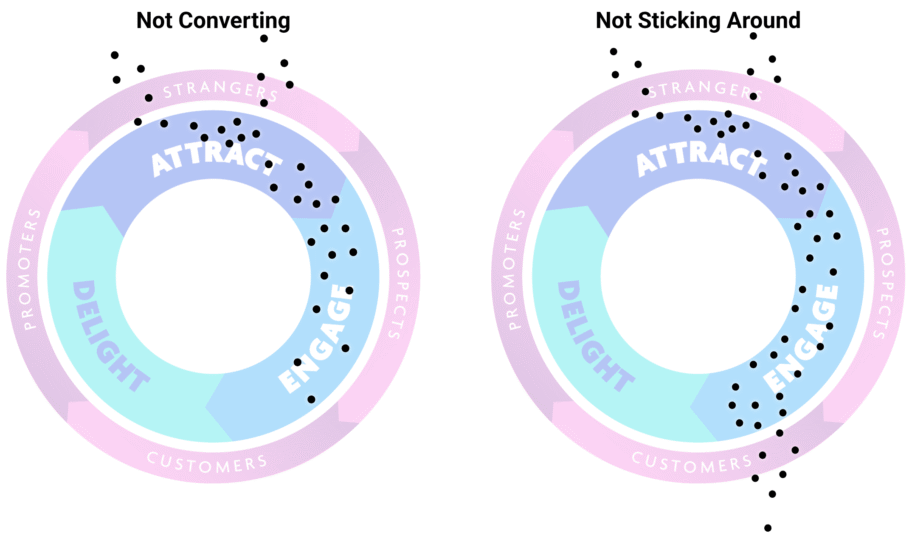
Delight
Delight is where trust compounds. You own feedback, ship improvements, report wins, and proactively support before issues become churn. Delighted customers become promoters—and those promoters pull in new strangers who skip ahead because they already trust you.
Win here by showing your customers that your offer is resulting in them having successes. Do this by tracking KPIs for your customers and notifying them of milestones. Lean into the value that you’ve given them to get them to this point and encourage them to share their wins with others. Done right, this activates the final phase of your flywheel.
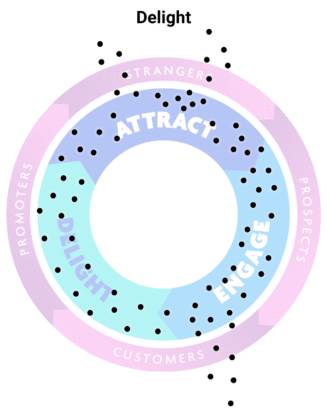
The Trust Bucket (Why Churn Happens)
When a customer pays, they’re depositing trust into a bucket that has holes. Your job is to pour value in faster than trust leaks out. If deposits (value) slow or leaks (issues, silence, broken promises) widen, the bucket empties… that’s churn. Every churn event is a trust event.
It’s important to plug holes quickly, and continue filling your customer’s trust bucket. Fill their bucket by notifying them of successes, taking ownership of issues and showing them that you take action to fill gaps. Fix kinks in your onboarding and support process and watch your customers stick around longer!
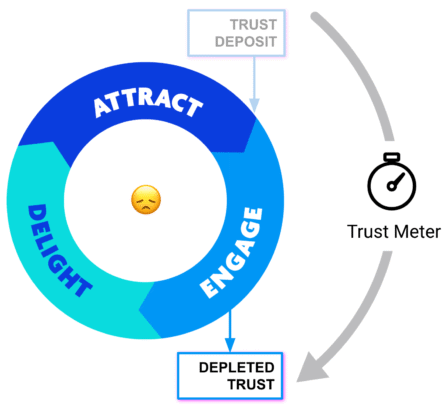
Find Your “Gerald” (The Promoter-First Blueprint)
CloseBot began by moving one person all the way from stranger → prospect → customer → promoter. That promoter (Gerald was his name in our case) exposed gaps we fixed for the next wave. Start with one promoter and work backward; your process will harden faster than trying to brute-force scale a leaky system.
If you find one person with a large and consistent enough problem that you can solve, they will guide you on what you need to do to win. Gerald is still with us! In fact, he’s one of our preferred partners who can be found HERE.
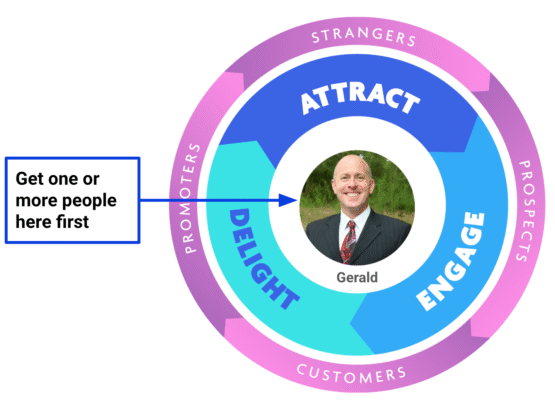
Final Word
Your customer flywheel should be the foundation of the business. Use this guide to identify where energy is being lost, plug the trust leaks, and keep adding value so promoters become your largest acquisition channel. When the wheel spins, the business starts building itself.
